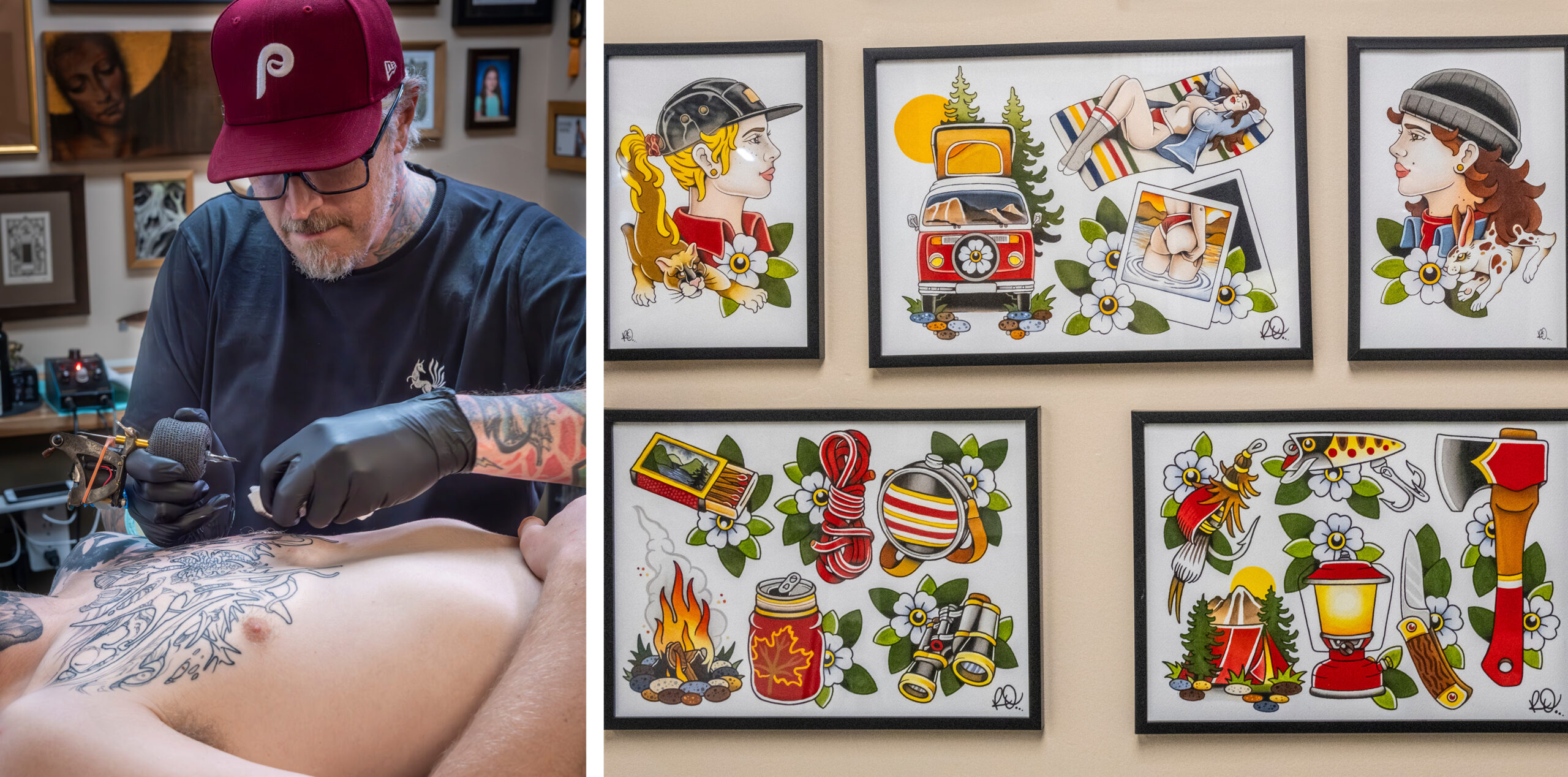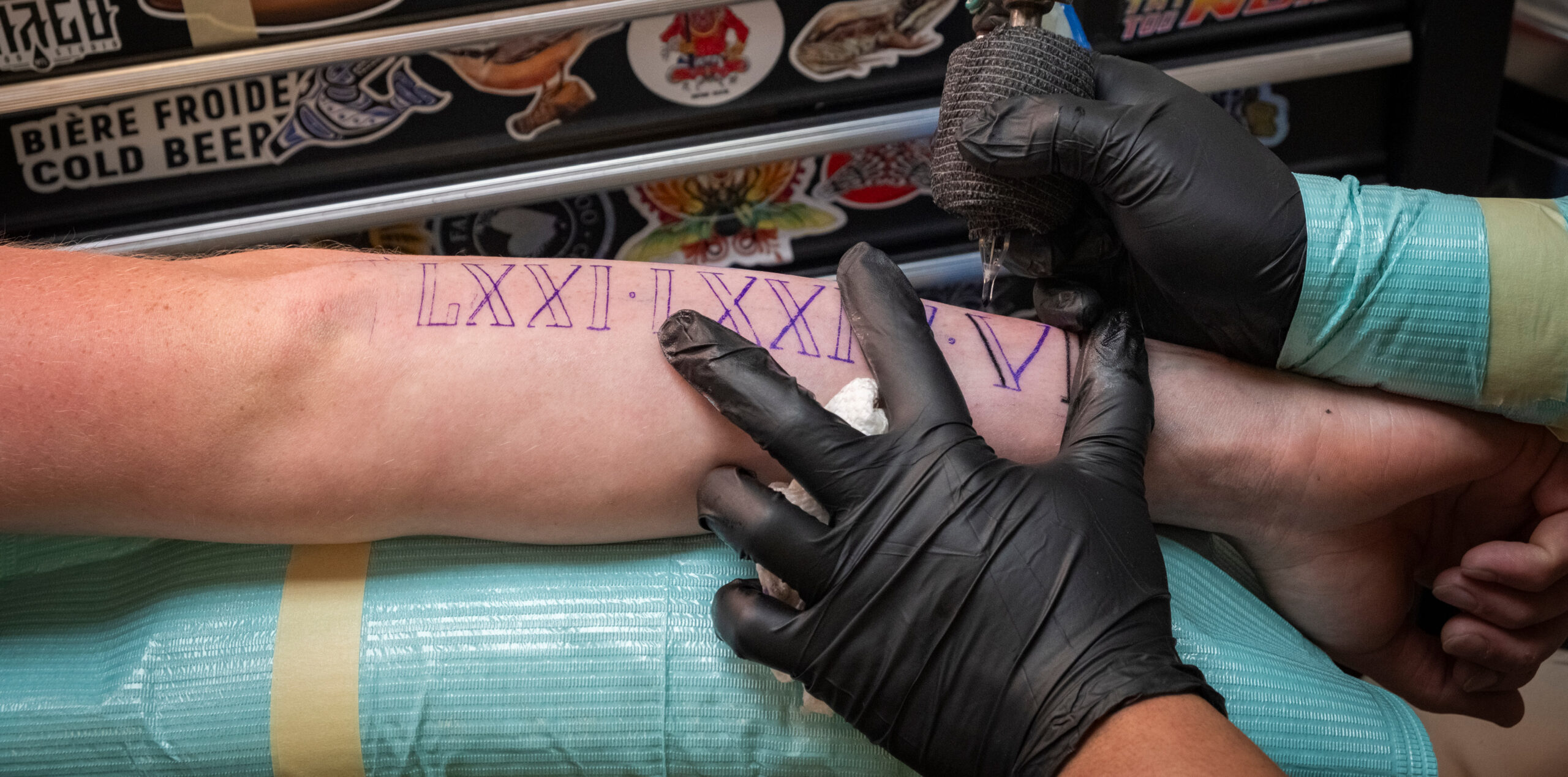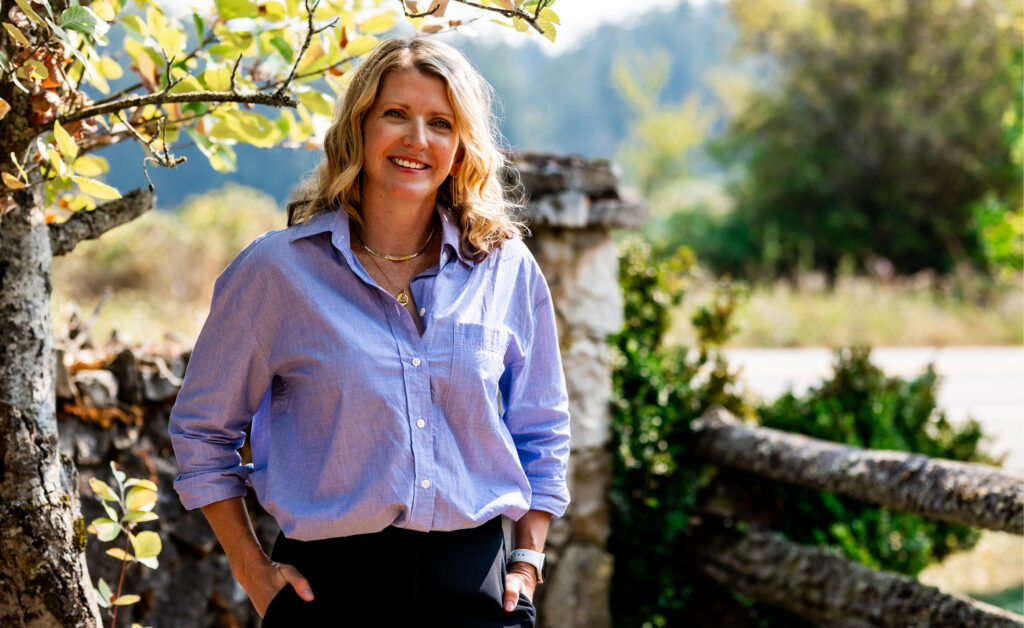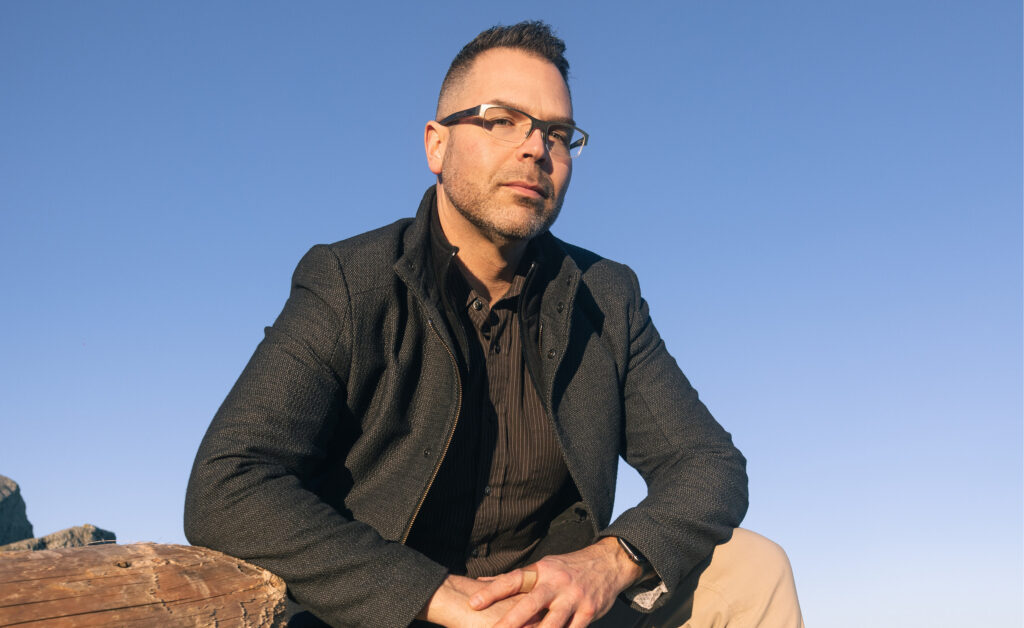Words Jesse Holth
Photos Tanya Murchie
Tattoos are a form of self-expression – beyond their aesthetic appeal, they can serve as an act of reclamation, represent memories or significant milestones on your life journey, or embody your personal or spiritual beliefs.
They can empower you to live in your body authentically, whether that means a full-on sleeve or a minimalist micro tattoo. What makes tattoos so special, and who are the artists that create them?
Dave Knight, owner of Second Street Tattoo in Sidney, says he was drawn to being a tattoo artist over 30 years ago, after studying graphic design and illustration in post-secondary school. “I realized I didn’t want to sit in front of a computer all day,” says Dave, “and I’d always loved tattoos.”
The industry has changed quite a bit over the years. “Back then, it was harder to get information or supplies or equipment,” Dave explains. “Now, the doors are open to a lot of people who wouldn’t have been able to pursue it back then, people from different backgrounds.” Thanks in no small part to the rise of the internet and social media, tattooing has become more accessible and open to different kinds of artists.
“There are people who come to it from different backgrounds, like painting or illustration – they bring their interests into tattooing,” Dave says. “Tattooing used to be a lot more of a subculture, and it drew a certain mentality and approach to it. It’s more mainstream now, and it’s open to more people – it’s less intimidating and more accepting of people in general.”
When it comes to qualifications, they can vary widely depending on the state or province where a tattoo shop is located. “It used to be that you would find a person who owned a shop, and become an apprentice – but now it’s more open with access through social media. You can simply have a drawing portfolio to show, and that will get you started.”
Dave says what makes someone a good tattooer is that they love to draw or paint, they enjoy being creative, and like to get inspired not just by tattoos but other art forms. “Inspiration can come from painting, illustration, being out in nature, architecture – there are all these things to draw from, and that’s what you put into your tattoos.” Being open to all sorts of artwork, not just tattoos, makes a big difference. “To have an open mind and draw inspiration from different places – that’s what I’m looking for when I hire someone, that they have a different approach.”
There are pros and cons to the rise of social media: there can end up being more repetition and a sense of homogeneity among tattoo designs, but it also provides a window into what other people are doing around the world. “You can see things you wouldn’t normally think about,” says Dave. “When I started, you had to find artwork by going to conventions or to someone’s physical shop; now, it’s more accessible. You can see work from tattoo artists in Germany, the U.S., Canada, everywhere.”
Technological advancements have changed the tattooing industry, as well: rotary machines, which are like a tattoo pen, have become more popular as they are quieter and lighter than traditional coil machines. “They are easier to use, easier to learn, and have fewer moving parts to break down and know how to fix,” explains Dave. “It’s really changed the landscape over the last decade, and especially the last five years.”
“The classic tattoo machine that everyone thinks of, it’s falling by the wayside with this new technology,” says Dave. But there are still some places that use the traditional coil machines – including Dave’s shop. “It’s like driving an old car – you get to know your machine, and it’s kind of like you’re the only one who can drive it. The don’t have that nostalgic ‘buzz’ people associate with a tattoo shop.”
If you’re looking to get into tattooing, it helps to build a strong portfolio. It can be art in any medium, as long as it showcases your range as an artist. It may also help to find a mentor, someone at a local tattoo shop whose work you admire, so you can learn about the industry and what hands-on skills are necessary.





